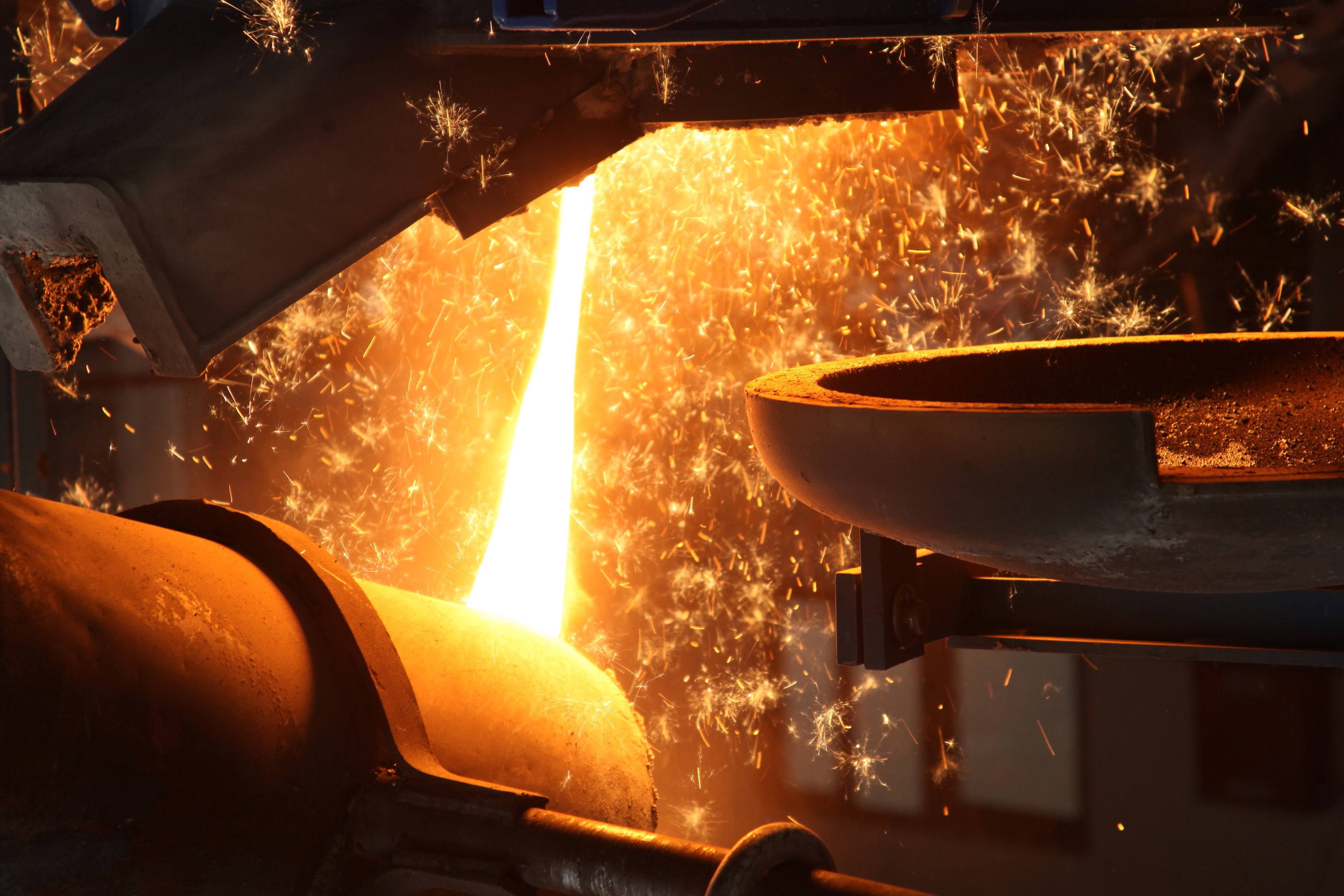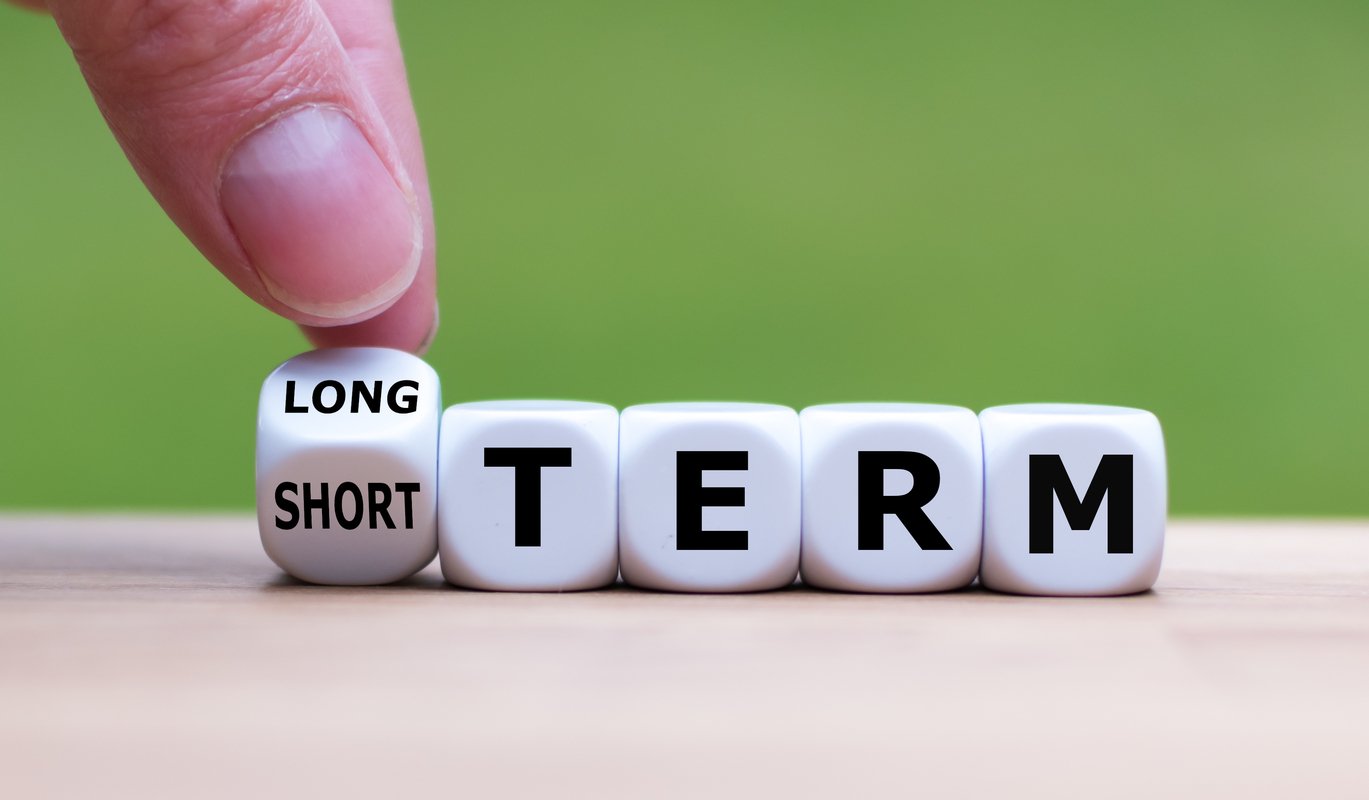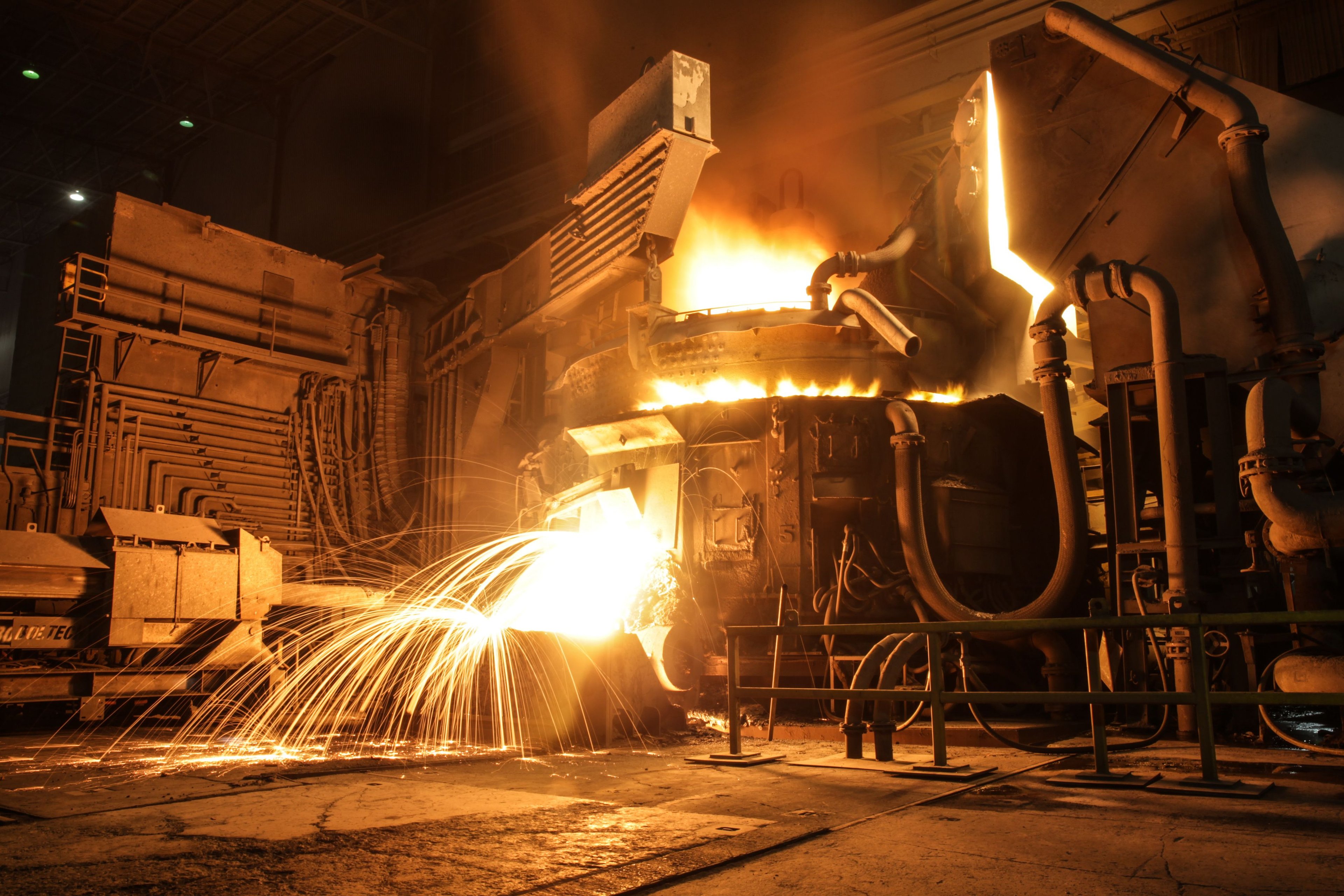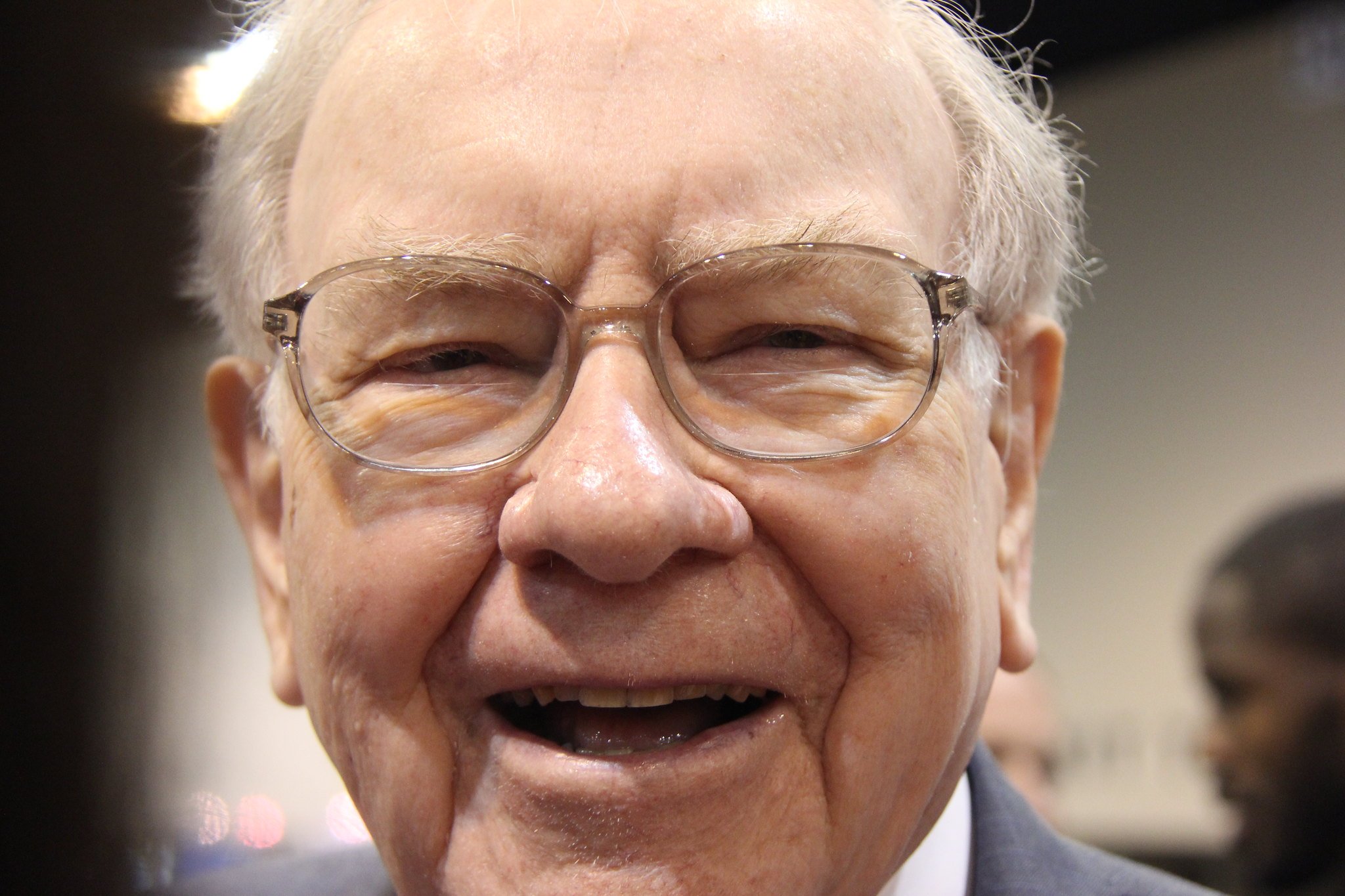Nucor (NUE +1.34%) is one of the largest steel companies in the U.S. and has proven that it is also one of the best-run players in the steel sector. That's backstopped by an incredible 46-year streak of annual dividend increases (notably achieved in a highly cyclical industry) and a conservative balance sheet. With the stock down 20% from recent highs, investors might be tempted to jump aboard this high-quality name. But they shouldn't. There's likely to be more pain ahead -- and that will create an even better buying opportunity.
Ups and downs
Steel demand tends to ebb and flow with the economy. That makes sense given that steel is an important input for industries as varied as construction and consumer products. Although Nucor's stock is down materially, the company hasn't actually seen much weakness yet in its end markets. In fact, during the company's first-quarter conference call, management noted that 21 of the 24 end markets it services are still performing reasonably well.

Image source: Getty Images.
Pricing has been volatile, and the share prices of steel stocks have moved up and down along with the hype surrounding steel tariffs, but the underlying business has yet to take a material hit. In fact, Nucor posted record earnings in 2018. And while management is projecting softer results in 2019, the company isn't expecting to fall off a cliff. That could happen if there's a recession, of course, but so far the company's business is holding up well.
Yes, Nucor has guided to lower second-quarter earnings, and that's worrying. However, a key driver of that was cautious buyers letting their inventories fall. The company still sees broad strength across the business sectors it serves, so the hit could be only temporary if the broader economy remains strong and inventories need to be replenished quickly.
The recent drop is painful, but a real recession will probably mean an even lower stock price. That's partially driven by the fact that Nucor is in the middle of a massive building program, totaling around $3.5 billion. The projects in the works are all strategic investments meant to help maintain its position as a low-cost producer with industry-leading steel capabilities. In other words, the capital investment appears worthwhile. But that kind of spending in a downturn will look much less desirable than it does when the industry is doing relatively well. So, when a downturn does hit, Nucor's stock is likely to be dealing with multiple headwinds (weak demand, weak pricing, and elevated capital spending). And that will likely lead to an even deeper share price decline -- the stock fell over 60% during the 2007-2009 recession.
A real opportunity
Here's the thing: Nucor is built to survive the ups and downs of the U.S. steel industry. For example, at the end of the first quarter, long-term debt was modest at roughly a third of the capital structure. Cash on hand totaled $1.55 billion, up $200 million year over year. And the company's $1.5 billion revolving credit facility was completely undrawn and doesn't mature until 2023. It has plenty of capacity to keep funding its spending plans even in a downturn. Which, by the way, is par for the course, since Nucor's general game plan is to use downturns to strengthen its business so it can exit the weak spell an even stronger company.
Investors, however, will probably be throwing the baby out with the bathwater when a recession hits, lumping Nucor in with financially weak steel competitors that will likely be retrenching. Nucor will get some credit for the fact that it operates more modern electric arc mills, which, to simplify a bit, cost less to operate and are more flexible than older blast furnaces. But when earnings decline (which will happen) and spending remains elevated (which is highly likely to be the case), Nucor's long history of success will quickly be forgotten. So, too, will its industry-leading leverage metrics, which clearly suggest that it will survive the next downturn just like it has survived every other one it has faced.
NUE Financial Debt to EBITDA (TTM) data by YCharts
To be fair, Nucor's nearly 3% dividend yield is higher than it has been in a while (it was closer to 2% at the start of 2018). But a yield in the 4% space would likely be a much more attractive entry point. And since the current stock pullback isn't paired with a broad economic downturn, there's good reason to believe that the shares could fall further under the "right" conditions. For most investors, it is worth waiting.
The hard call
The fly in the ointment is that when Nucor is finally a good buy, it will be really difficult to pull the trigger. That's because the economy will likely be in a full-on recession and financial results will be falling hard at the same time that Nucor is working through material spending plans. It will look like the sky is falling, even though Nucor is built to survive such industry pullbacks. But if you think through this scenario now and put the steel giant on your wishlist, you are more likely to follow through on a plan to buy it in the future. So don't jump on Nucor today, but make a plan to buy this industry-leading giant when things get really, really ugly.







